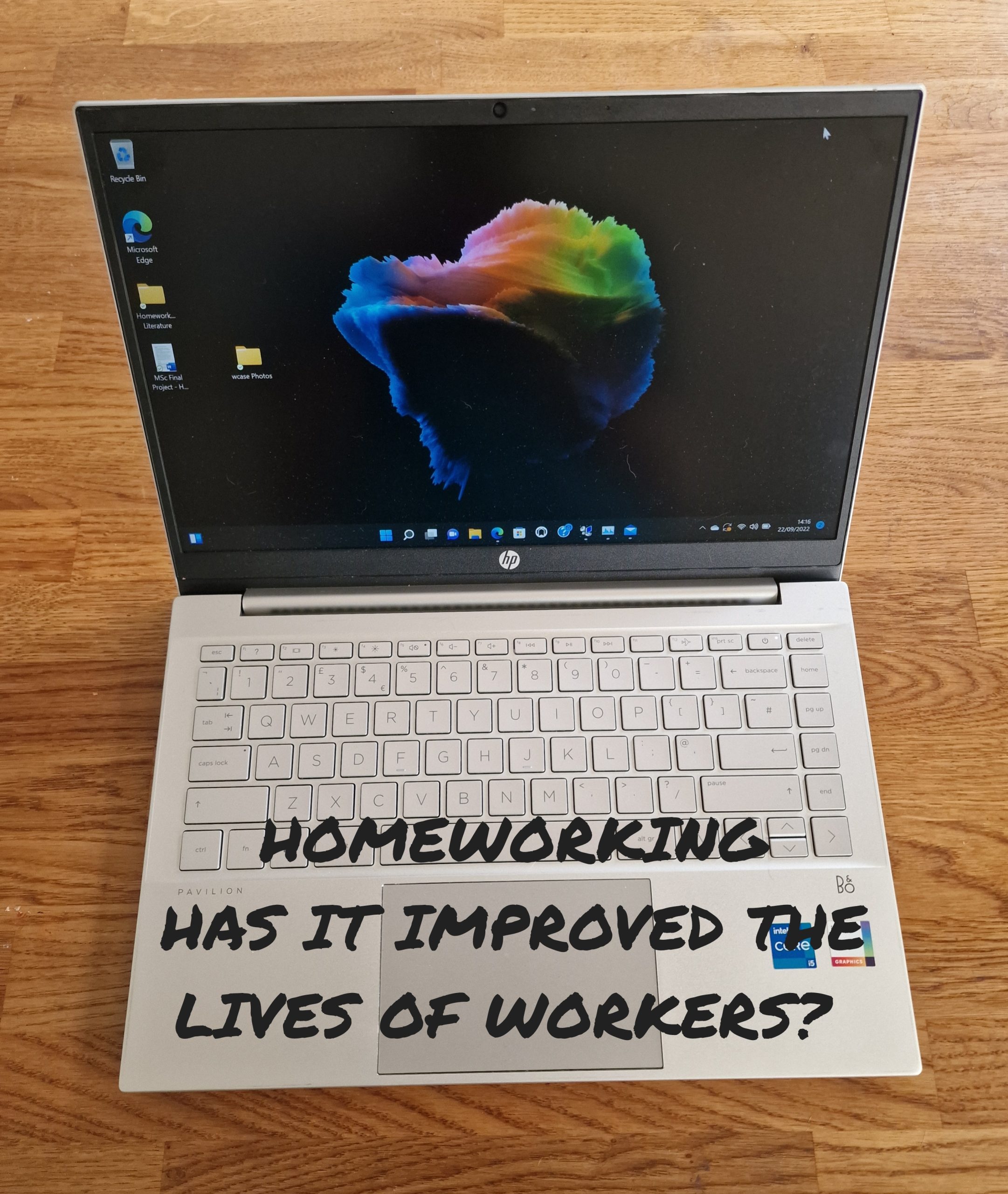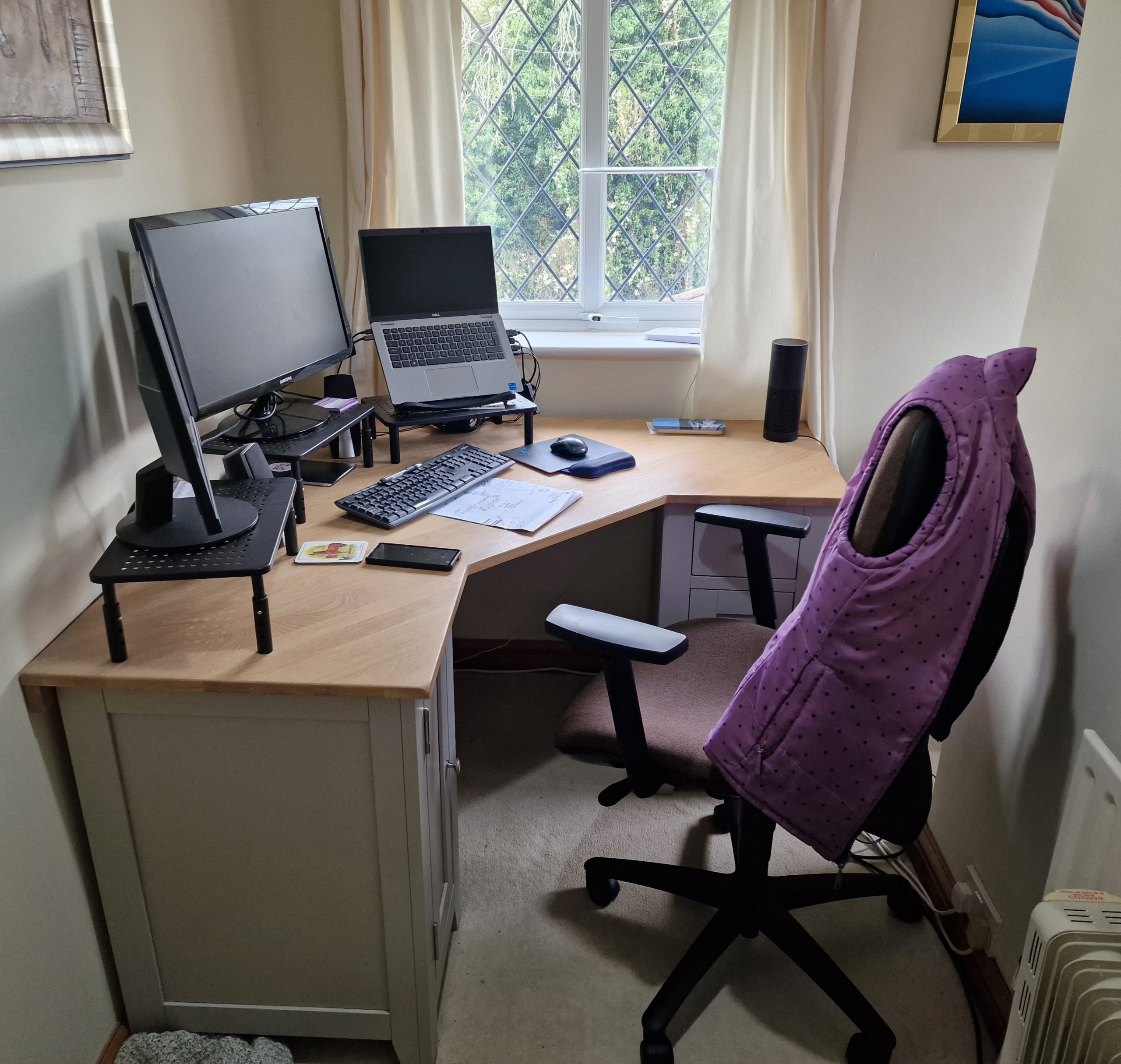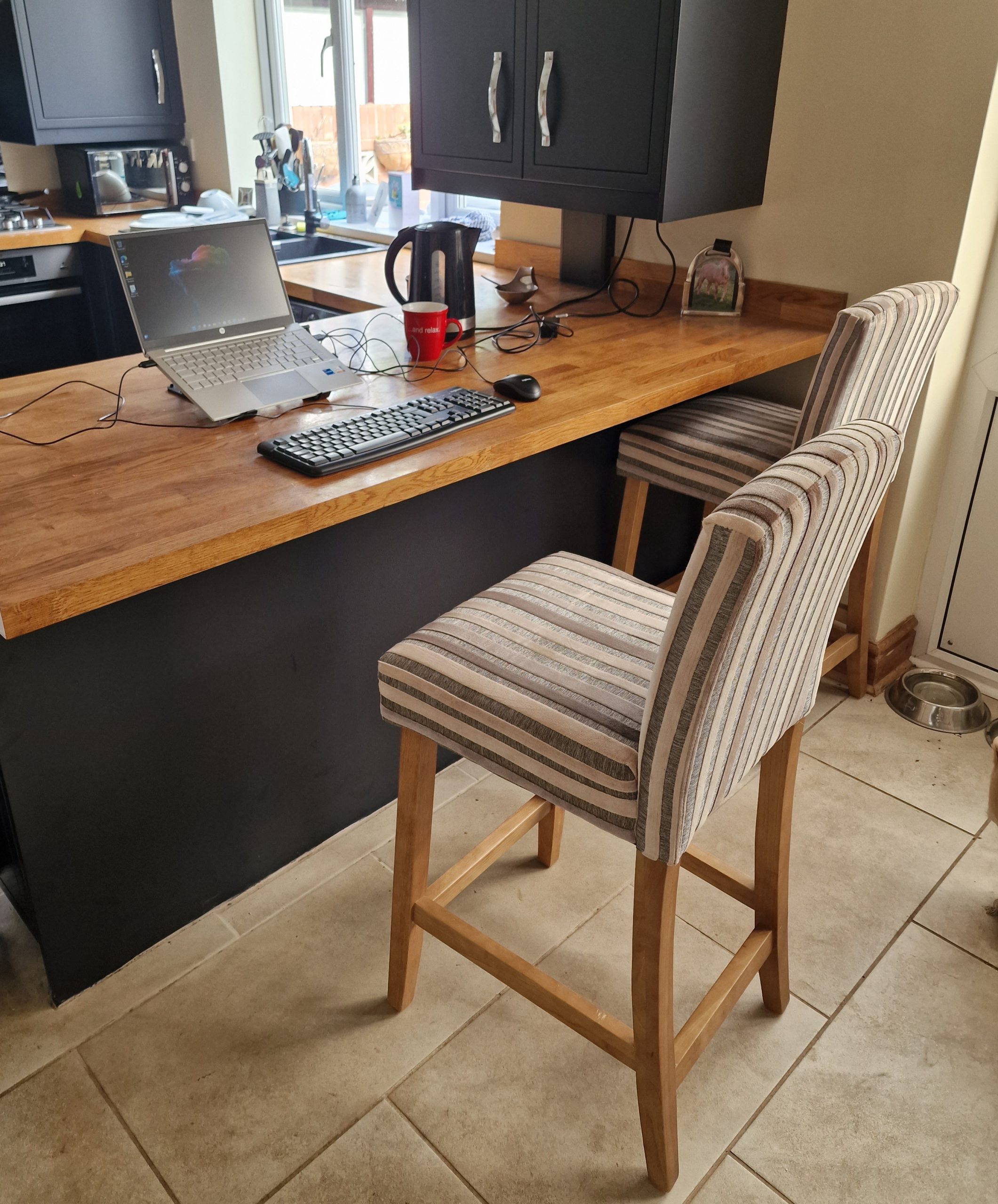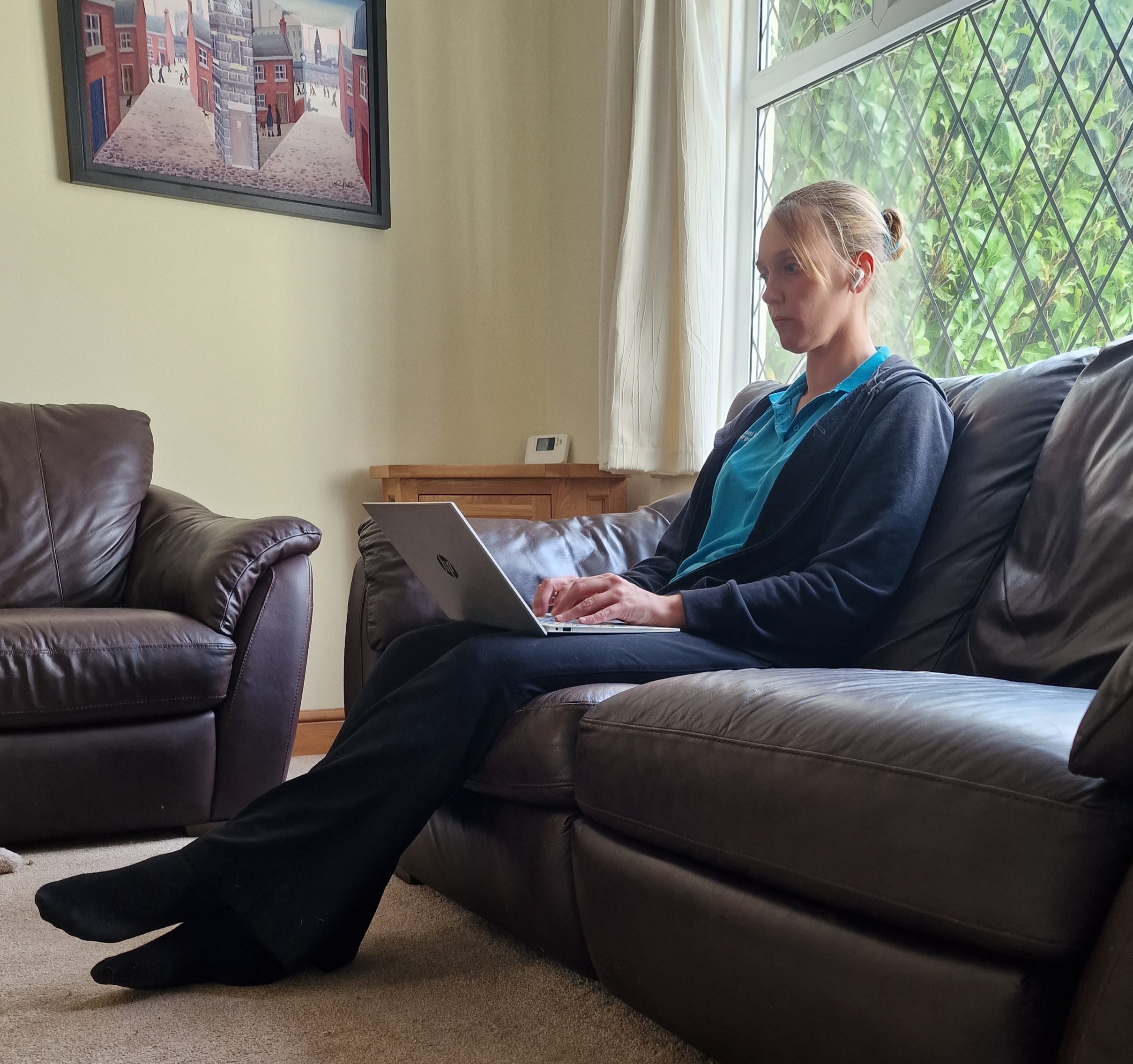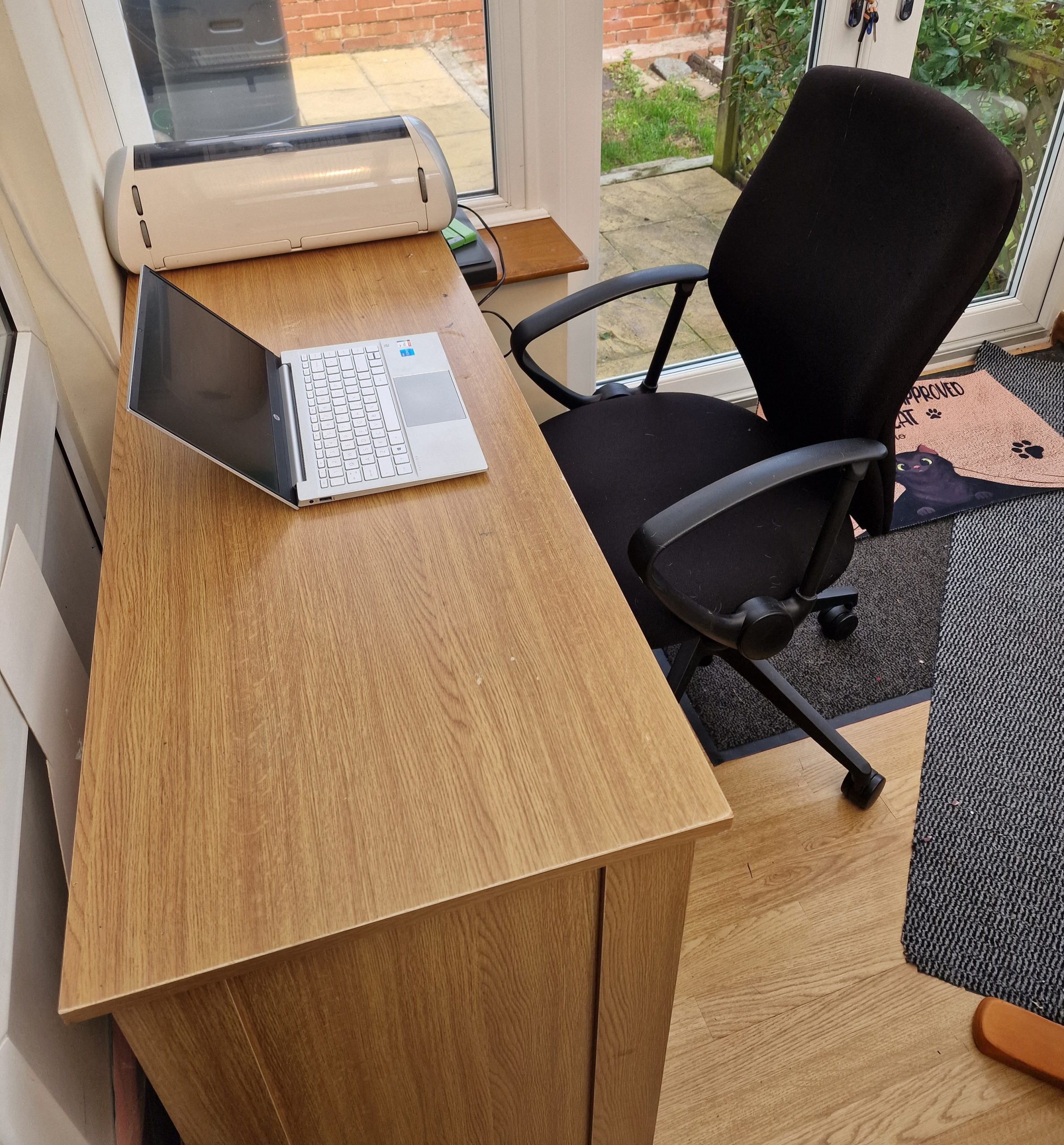My work looks at the working environments and practises of staff and the way that they interact with it to try to improve their experience when working.
Major project
Has working from home improved the lives of workers?
When the Covid-19 pandemic caused the UK to go into lock-down in March 2020, many non-clinical workers and some clinical staff at UHB NHS Trust were required to suddenly work from home without any time to make adjustments to their home. The first lock-down initiated a huge change in the way that many desk based staff performed their work and initially the Trust was not prepared for this mass migration to homeworking, as this was not a working model that had been used widely before. At a time when both clinical services and staff members were at a premium, the Trust was also required to ensure that it's new army of homeworkers were provided with safe and adequate workstations in their homes. This involved adjustments to existing policies and procedures and the creation of a completely new homeworking policy to ensure that staff safety was maintained during working hours and an equitable allocation of resources was provided.
More than two years after the initial lock-down period, it seems appropriate that the subject of homeworking and the experiences of staff performing this type of work are reviewed to identify how successfully the Trust has migrated to this new style of working. This project examines the opinions, general physical health and workstation set-up of staff members working within the Trust and aims to identify ways in which UHB Trust staff could improve their homeworking experience.
Good set-up for long term homeworking
When working from home long term, it is essential to ensure that a good workstation is created to ensure that the individual is able to work safely and easily. Supportive and appropriate equipment is important to ensure that the individual is able to work in the most comfortable way possible, enabling them to concentrate more easily and be more productive.
One of the bigger challenges for homeworkers is a lack of correct equipment with my research showing that more than 50% of respondents stating that they used a dining/kitchen table or their laps to rest their laptop on rather than a desk or similar surface. Many also reported that they had to use a laptop in its own rather than having a separate keyboard and mouse, meaning that they were unable to work with good posture.
Some homeworkers have had to compromise and have some adjustments for use at home, such as separate peripherals (mouse and keyboard in this case), but only have a dining room or kitchen chair to sit on. For some people this is not a problem, but for others it can be very challenging not to have the right equipment in place.
One of the outcomes of my research has shown that there is little parity between areas, some managers have been very proactive and ensured that their staff are well looked after, but others have failed to recognise the importance of ensuring that homeworkers are supported and we set-up in their home environment.
Although I have seen that some staff are uncomfortable and not happy with working from home, I have found that most individuals are happy to accept some minor discomfort if it allows them to work from home for all or part of their contracted hours. This is because they find the benefits of homeworking out weighs the disadvantages; although the general consensus was that a hybrid approach was the preferable model. Most participants of the focus groups I performed stated that whilst they were keen to work from home as it allowed them greater flexibility in their working day, they also found that prolonged periods of homeworking was likely to make them feel disconnected with their colleagues and generally more isolated, so they were inclined to perform 25-50% of their working time on a Trust site.
Completing the research for this project was somewhat challenging initially as I had to gain permission from my Trust before I could commence which resulted in a significant delay in commencing the research and required an extension to allow sufficient time for data collection.
Another challenge was arranging focus groups; many staff who wished to participate in further research were unable to attend the dates that I provided as they already had prior commitments. Other respondents to my questionnaire who stated they were interested in participating failed to respond to my invitation to the focus groups, which meant that they were not always as large as is ideal and perhaps this will have curtailed my information somewhat.
On a positive note, the individuals who were able to attend participated enthusiastically and expressed enjoyment of the subject matter and ensuing discussions. The focus groups really helped to round out the information that I collected in the questionnaire and allowed me to dig deeper into the issues shown in the questionnaire.
Siobhan Burns
Major project
Has working from home improved the lives of workers?
Work Experience
I currently work for University Hospitals Birmingham (UHB), one of the largest NHS Trusts in England, as the Ergonomics Adviser. In this role I support staff and help to ensure that they are working in the safest manner possible by performing assessments of individuals and workplaces. Following the assessment, I make recommendations and provide equipment trials where necessary to enable appropriate changes to be made in a cost-effective manner.
This role can be very challenging as I am a lone practitioner in an organisation with more than 22,000 staff members based on more than 11 different sites, so I have to ensure that I work in a time efficient way, whilst also making sure that I allow enough time to complete a thorough and detailed assessment. There are many differing workplaces and staff members in the Trust so it essential that my communication and listening skills are excellent.
